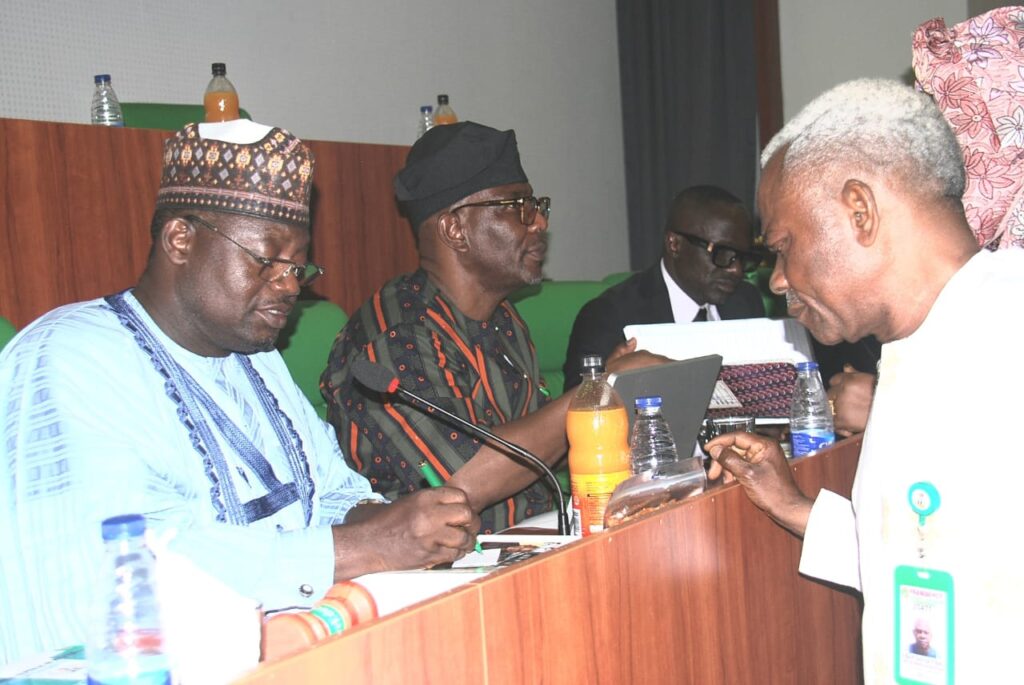The Chairman of the House of Representatives Committee on Alternative Education, Ibrahim Almustapha, has said there is the urgent need to empower Nigerian youths through structured vocational and entrepreneurial training.
This was as the House begun legislative action on a bill seeking to establish federal vocational and skills training centres across Nigeria’s 774 Local Government Areas in a bid to tackle youth unemployment and drive national development through alternative education.
At the maiden public hearing on the proposed legislation by the House Committee on Alternative Education, the chairman said the session marked a significant step toward addressing the country’s long-standing gaps in skills acquisition and technical training.
He described the initiative as “A commitment to the future of our nation,” highlighting the global shift toward skill-based economies driven by technology and innovation.
“In a world that is rapidly evolving, driven by technological advancements and changing market demands, it is imperative that we equip our young people with the necessary skills to thrive. The establishment of these centres is not just a policy initiative; it is a national imperative,” he said.
The hearing featured deliberations on nine related bills, including proposals for the creation of: National Institute for Technical and Vocational Education, Kalgo, Kebbi State; National Vocational Training Centre in all 774 LGAs (HB. 736); Federal College of Entrepreneurship and Skills Acquisition, Maiduguri, Borno State; and Federal Vocational and Entrepreneurship Training Centre, Mallam Madori, Jigawa State
Others are Federal Technical and Vocational Training Center, Aba, Abia State; Federal Vocational Training Center, Riyom, Plateau State; Federal College of Entrepreneurship and Skills Acquisition, Bunza, Kebbi State; Federal College of Entrepreneurship and Skills Acquisition, Ntigha, Abia State; and National Vocational and Entrepreneurship Institute, Jos, Plateau State.
In his remarks, Speaker Tajudeen Abbas emphasised the House’s resolve towards ensuring empowerment of Nigerian youths through vocational and skills training.
He said: “In a world that is rapidly evolving, driven by technological advancements and changing market demands, it is imperative that we equip our young people with the necessary skills to thrive. The establishment of these centres is not just a policy initiative; it is a commitment to the future of our nation.
“Again, it is common knowledge that vocational training and entrepreneurial skill acquisition is a foundation and catalyst to the growth of nations like Nigeria as her economy depends on the contributions of this vital sector.
“Nigeria, by any standard, is well endowed with youthful population readily available to acquire vocational training and entrepreneurial skills and use same for self-reliance and nation building.
“The fact that our vocational and entrepreneurial skill acquisition sector has not translated into a desirable outcome has remained a concern.”
Chairman, House Committee on Financial Crimes, Hon. Ginger Onwusibe, argued that other institutions might be of greater priority in some LGAs than vocational centres.
Also speaking, Hon. Olatunji Akinosi described the bill as “one of the most important bills this 10th assembly”.
“Before now, Nigerians have attached so much importance to having certificates. The countries we have tried to emulate do not have this kind of system. Your technical worth makes so much importance to them,” he said.















